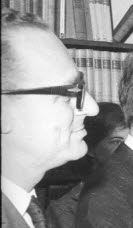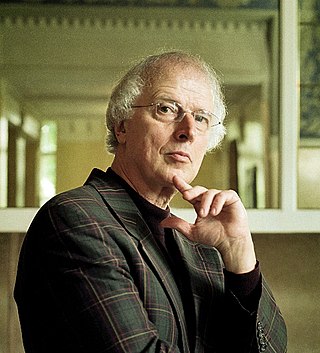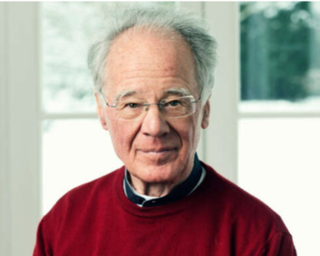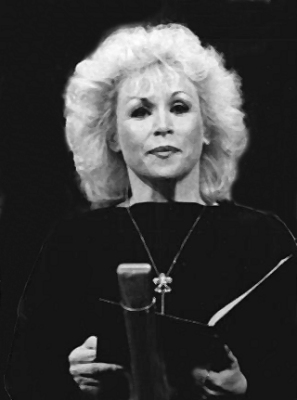
Michael Andreas Gielen was an Austrian conductor and composer known for promoting contemporary music in opera and concert. Principally active in Europe, his performances are characterized by precision and vivacity, aiding his ability to interpret the complex contemporary music he specialized in.

Siegfried Matthus was a German composer, conductor, and festival founder and manager. Some of his operas, such as Judith, were premiered at the Komische Oper Berlin in East Berlin. In 1991, he founded the chamber opera festival Kammeroper Schloss Rheinsberg and directed it until 2018. In 2005, he composed a Te Deum for the reopening of the Dresden Frauenkirche. Matthus is considered one of Germany's most often performed contemporary composers.

Cheryl Studer is an American dramatic soprano who has sung at many of the world's foremost opera houses. Studer has performed more than eighty roles ranging from the dramatic repertoire to roles more commonly associated with lyric sopranos and coloratura sopranos, and, in her late stage, mezzo-sopranos. She is particularly known for her interpretations of the works of Richard Strauss and Richard Wagner.
Harry Alfred Robert Kupfer was a German opera director and academic. A long-time director at the Komische Oper Berlin, he worked at major opera houses and at festivals internationally. Trained by Walter Felsenstein, he worked in the tradition of realistic directing. At the Bayreuth Festival, he staged Wagner's Der fliegende Holländer in 1978 and Der Ring des Nibelungen in 1988. At the Salzburg Festival, he directed the premiere of Penderecki's Die schwarze Maske in 1986 and Der Rosenkavalier by Richard Strauss in 2014.

Christian Thielemann is a German conductor. He is currently chief conductor of the Staatskapelle Dresden, and the designated Generalmusikdirektor of the Berlin State Opera.

Peter Hacks was a German playwright, author, and essayist.

Udo Zimmermann was a German composer, musicologist, opera director, and conductor. He worked as a professor of composition, founded a centre for contemporary music in Dresden, and was director of the Leipzig Opera and the Deutsche Oper Berlin. He directed a contemporary music series for the Bayerischer Rundfunk and a European centre of the arts in Hellerau. His operas, especially Weiße Rose, on a topic he set to music twice, have been performed internationally, and recorded.

George Alexander Albrecht was a German conductor and composer, who also worked as a musicologist and academic teacher. A prolific composer at a young age, he was Generalmusikdirektor (GMD) of the Staatsoper Hannover from 1965 for 30 years, where he led not only the major operas by Mozart and stageworks by Wagner, but contemporary composers, such as Aribert Reimann's Troades in 1987. He was GMD of the Nationaltheater Weimar from 1996, and taught at the Hochschule für Musik Franz Liszt, Weimar. Albrecht promoted the works of neglected composers such as Wilhelm Furtwängler, Hans Pfitzner, and Erwin Schulhoff.
Deborah Polaski is an American opera and concert singer (soprano). She has specialized in dramatic soprano roles and also sings mezzo-soprano roles occasionally.

The Dresdner Kreuzchor is the boys' choir of the Kreuzkirche in Dresden, Germany. It has a seven-century history and a world-wide reputation. Today, the choir has about 150 members between the ages of 9 and 19, from Dresden and the surrounding region. The boys attend the Kreuzschule in Dresden. They are also called "Kruzianer".

Weiße Rose is a chamber opera in one act by Udo Zimmermann. The opera tells the story of Hans and Sophie Scholl, a brother and sister in their early twenties, who were guillotined by the Nazis in 1943 for leading Die Weiße Rose, a non-violent resistance group. The opera premiered at the Dresden Conservatory on 17 June 1967 with a German libretto by the composer's brother, Ingo Zimmermann, a well known journalist and writer in Germany. The opera was received fairly well. Zimmermann revised it the following year for a professional production in Schwerin.
Kurt Horres was a German stage director, particularly of opera, and opera manager. He held positions as general manager at the Staatstheater Darmstadt, the Hamburg State Opera, and from 1986 to 1996 at the Deutsche Oper am Rhein. He focused on opera of the 20th century, including composers who had been banned during the Nazi regime, such as Korngold's Die tote Stadt, and literature operas including Gottfried von Einem's Kabale und Liebe, and the world premieres of Blacher's Yvonne, Prinzessin von Burgund, and Klebe's Das Mädchen aus Domrémy. He taught stage direction at the Folkwang University.
Tanja Ariane Baumgartner is a German operatic mezzo-soprano. A member of the Oper Frankfurt since 2009, she has enjoyed an international career, appearing in major European and American opera houses and the Salzburg Festival.
Claudia Barainsky is a German operatic soprano. She has performed internationally, and won awards for her roles in contemporary operas such as Bernd Alois Zimmermann's Die Soldaten and Aribert Reimann's Medea.

Die wundersame Schustersfrau is an opera in two acts by Udo Zimmermann, with a libretto which he wrote with Eberhard Schmidt based on the 1930 Spanish play La zapatera prodigiosa, a farsa violenta by Federico García Lorca and translated by Enrique Beck. The opera was first performed on 25 April 1982 at the Schlosstheater Schwetzingen, staged by Alfred Kirchner.
Andrea Ihle is a German operatic soprano. A long-term member of the Staatsoper Dresden, she performed a wide range of roles from coloratura soprano to character roles. She appeared as Ännchen in Weber's Der Freischütz in the opening performance of the rebuilt Semperoper, in world premieres and in contemporary opera such as Udo Zimmermann's Der Schuhu und die fliegende Prinzessin

Eva-Maria Bundschuh is a German operatic soprano who began her career as a contralto. She received international when she collaborated with Harry Kupfer at the Komische Oper Berlin.
Werner Haseleu was a German operatic bass-baritone and academic voice teacher. He was a long-term member of the Staatsoper Dresden and the Komische Oper Berlin, often with director Harry Kupfer at both houses. He was known for leading roles in world premieres and contemporary opera.
Mathieu Lange was a German musician, conductor and from 1952 to 1973 director of the Sing-Akademie zu Berlin. He hadn't gone by his first name Carl since 1950.
Joachim Herz was a German Opera director and manager. He learned at the Komische Oper Berlin as an assistant to Walter Felsenstein. His major stations were the Leipzig Opera where he opened the new house with Wagner's Die Meistersinger von Nürnberg, Komische Oper and Semperoper in Dresden, where he opened the restored house with Weber's Der Freischütz in 1985. He staged many world premieres, and worked internationally. Herz was the first director to apply Felsenstein's concepts to Wagner's Der Ring des Nibelungen, staged in Leipzig from 1973 to 1976.











